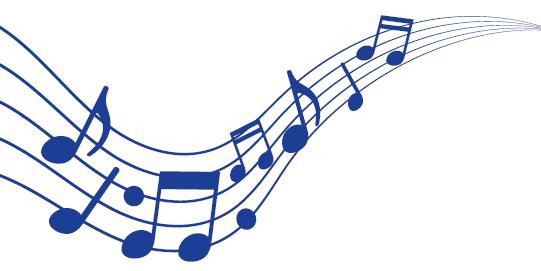8
Be More Musical
“I live my daydreams in music. I see my life in terms of music . . . I get most joy in life out of music.”
Einstein
If you're a musician, you're in luck. Every time you play, you're giving your brain one of the best workouts it can get. Neuroscientists have shown that musical skill requires a suite of neural processes firing in tandem: perceptual, cognitive, motor, and executive. Making a career as a musician is like being a professional bodybuilder of the mind.
Steven Pinker and others feel that our musical powers – some of them at least – are made possible by using, or recruiting, or co-opting brain systems that have already developed for other purposes. This might go with the fact that there is no single “music centre” in the human brain, but the involvement of a dozen scattered networks.
Playing music has been found to increase the volume and activity in the brain's corpus callosum – the bridge between the two hemispheres – allowing messages to get across the brain faster and through more diverse routes. This may allow musicians to solve problems more effectively and creatively, in both academic and social settings.
So maybe Einstein's love of music was more than just a pleasant distraction from all that hard thinking he did. In actual fact, playing his violin was very much part of his working day. After a few hours thinking, he'd pick up his violin and then the ideas would start to flow. It's not surprising really as it's now been found that playing an instrument is a very good way of switching the brain from the active brain to the default mode network, “the mind-wandering brain”, that's so helpful for insight.
Music can also help your brain to grow. Harvard neurologist Gottfried Schlaug found that the brains of adult professional musicians had a larger volume of grey matter than the brains of non-musicians. Schlaug and colleagues also found that after 15 months of musical training in early childhood, structural brain changes associated with motor and auditory improvements begin to appear.
In a study by Brenda Hanna-Pladdy, 70 healthy adults between the ages of 60 and 83 were divided into three groups: musicians who had studied an instrument for at least ten years, those who had played between one and nine years, and a control group who had never learned to play an instrument or how to read music. Then she had each of the subjects take a comprehensive battery of neuropsychological tests.
The group who had studied for at least ten years scored the highest in such areas as nonverbal and visuospatial memory, naming objects, and taking in and adapting new information. By contrast, those with no musical training performed least well, and those who had played between one and nine years were in the middle.
In other words, the more they had trained and played, the more benefit the participants had gained. But, intriguingly, they didn't lose all of the benefits even when they hadn't played music in decades.
And it's not too late to gain the benefits, even if you don't take up an instrument until later in life. Jennifer Burgos, an assistant professor of music education at the University of South Florida, Tampa, studied the impact of individual piano instruction on adults between the ages of 60 and 85. After six months, those who had received piano lessons showed more robust gains in memory, verbal fluency, the speed at which they processed information, planning ability, and other cognitive functions, compared with those who had not received lessons.
“Musical training seems to have a beneficial impact at whatever age you start. It contains all the components of a cognitive training program that sometimes are overlooked, and just as we work out our bodies, we should work out our minds,” she says.
So if you want the keys to a fitter, stronger, more active mind, they're piano keys.

